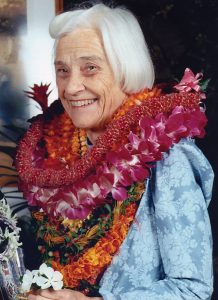Dr. Martin Hyung-Il Lee
 Lee, the father of Pomona College Trustee Bobby Lee ’02 and Jenny Lee ’07, immigrated to the U.S. from South Korea in 1974, becoming the first in his family to graduate college before going on to medical school with the help of scholarships supplemented by student loans.
Lee, the father of Pomona College Trustee Bobby Lee ’02 and Jenny Lee ’07, immigrated to the U.S. from South Korea in 1974, becoming the first in his family to graduate college before going on to medical school with the help of scholarships supplemented by student loans.
As a doctor, Lee for decades served immigrants in Los Angeles’ Koreatown, sometimes even accepting copayments in windowsill chili peppers from elderly widows with limited incomes.
Now students on Lee’s same path to the American dream will benefit from a $1 million gift to Pomona College devoted entirely to scholarships. The Dr. Martin Hyung-Il Lee Scholarship Fund is for students facing financial hardships who come from immigrant families, are first-generation college students and/or are pursuing careers in science or medicine.
Lee’s son Bobby and daughter-in-law Sophia Whang established the fund to honor Dr. Lee, who died in 2021 at the age of 64.
“My father lived the American dream, and this is a way to carry on his memory and ideals,” says Bobby Lee, president and COO of Los Angeles-based JRK Property Holdings.
Barbara Barnard Smith ’42
 Smith’s remarkable support for the College and non-Western music continued at her passing last year at the age of 101. She left more than $3.5 million to the Music Department through a planned gift, bringing her support to the College over the years to $5.7 million.
Smith’s remarkable support for the College and non-Western music continued at her passing last year at the age of 101. She left more than $3.5 million to the Music Department through a planned gift, bringing her support to the College over the years to $5.7 million.
Half of her final gift will support the future renovation of Music Department facilities and the naming of a space in honor of the late Professor of Music Katherine J. Hagedorn. The other half will further endow the existing Barbara B. Smith ’42 Fund for Non-Western Music to support ethnomusicology curriculum and other instruction, programming, equipment and performances of non-Western music at the College. Smith’s support made possible Pomona’s non-Western music ensembles, including the Balinese gamelan, West African and Afro-Cuban ensembles.
After graduating from Pomona, Smith studied at the Eastman School of Music at the University of Rochester before embarking on a career teaching at the University of Hawaii at Mānoa from 1949 to 1982. Noting the university’s diverse student body, Smith introduced classes in hula and Hawaiian chant, Korean dance, Chinese dulcimer and Japanese gagaku (court music). She founded UH Mānoa’s ethnomusicology program and established its master’s and Ph.D. ethnomusicology degree programs.
